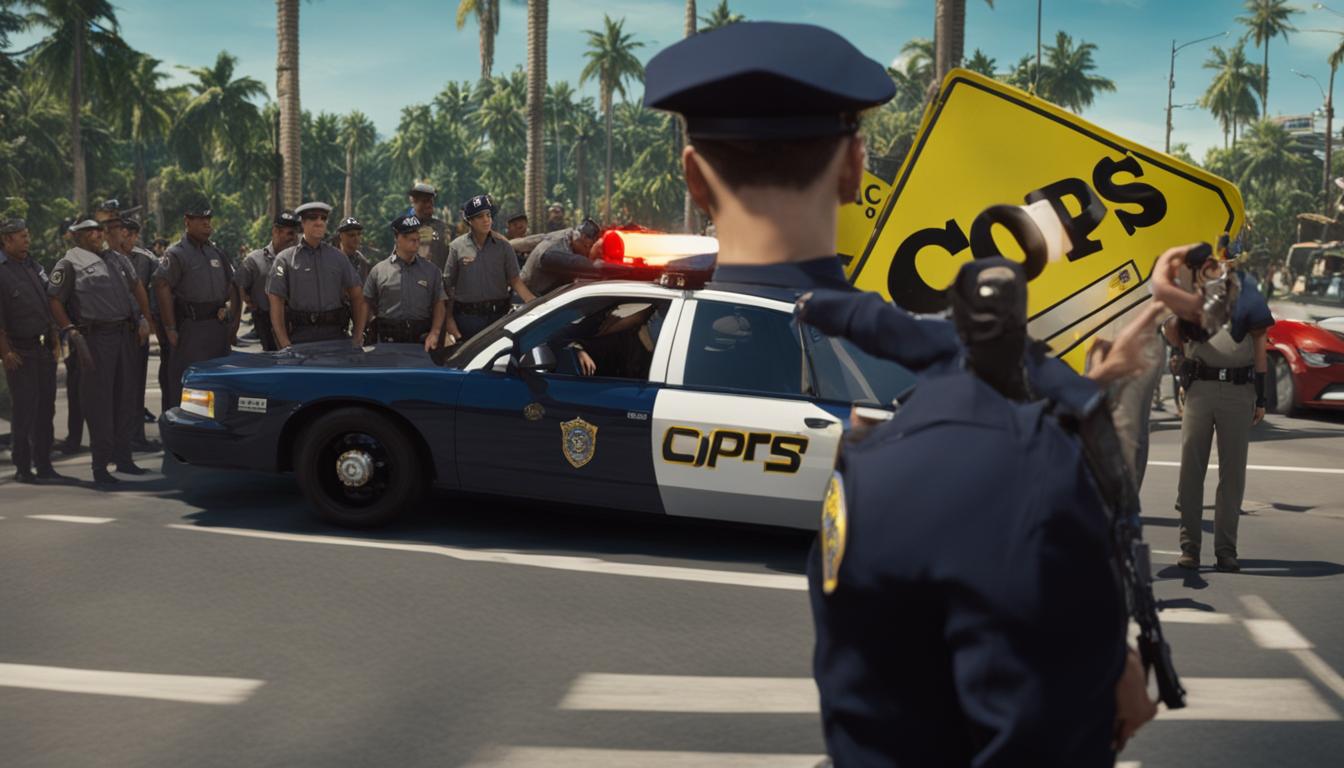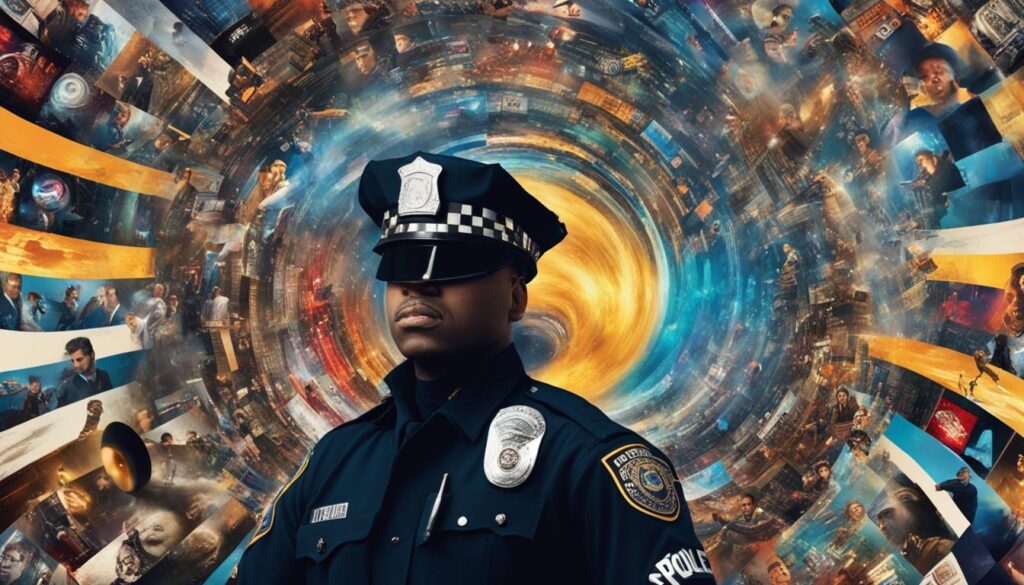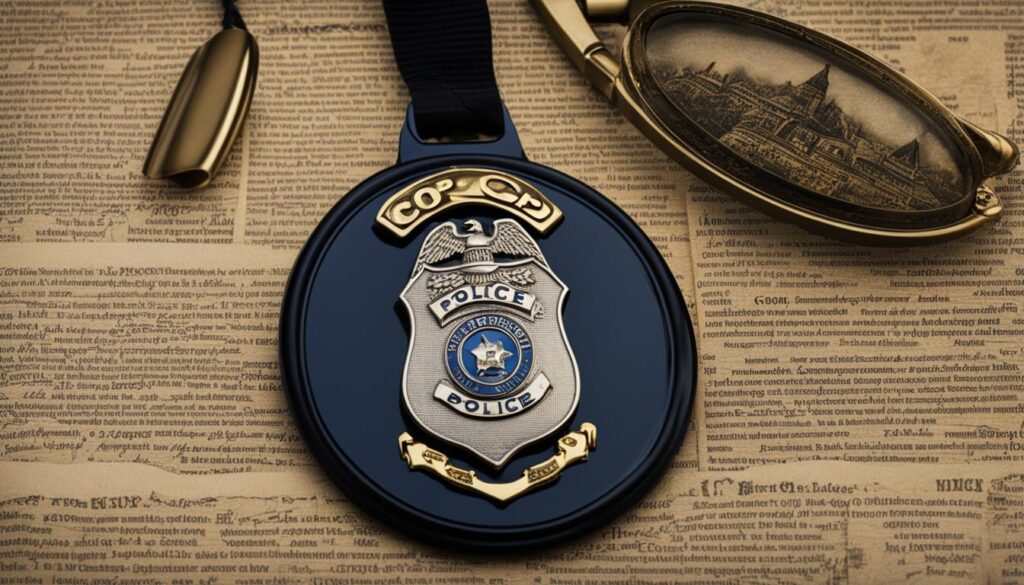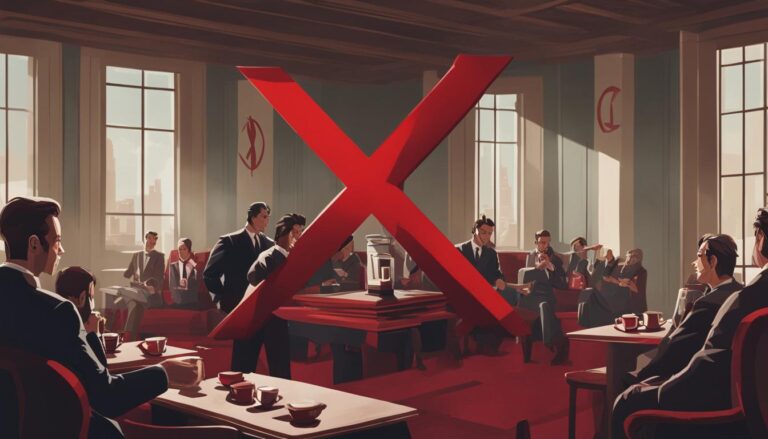Unraveling the Mystery: Why are Police Called Cops?
Today, I am here to dive into a fascinating topic that has piqued the curiosity of many: the origin of calling police officers “cops.” You may have wondered why we use this particular term to refer to those who serve in law enforcement. Well, let’s embark on a journey through history to unravel the mystery behind this intriguing nickname.
The term “cops” is commonly used as a slang word for police officers. It has become an integral part of our everyday vocabulary. But where did it come from? The exact origin remains somewhat uncertain, but many believe it may have derived from the verb “to cop,” which means to seize or capture. Over time, this term became associated with the police, perhaps due to their role in apprehending criminals and maintaining order in society.
The use of “cops” as a nickname for police officers has evolved over the years, finding its way into literature, film, and television. It has become widely accepted and understood, reflecting the informal and colloquial nature of the term. While some may argue that slang diminishes the professionalism of the police force, others see it as a way to foster a sense of camaraderie and connection between officers and the communities they serve.
Police procedurals, a popular genre in popular culture, often portray the day-to-day activities of officers and their investigative work. In these narratives, the term “cops” is commonly used to humanize the characters and create a relatable connection with the audience. It helps reinforce the idea that police officers are regular individuals who have chosen a career in law enforcement.
Throughout history, police officers have been given various nicknames, reflecting different cultural, regional, and historical contexts. While “cops” is one of the most recognized and used nicknames, other popular examples include “the fuzz,” “the boys in blue,” and “the heat.” These nicknames contribute to the rich tapestry of law enforcement terminology, adding a touch of individuality to the profession.
The word “cop” has become deeply intertwined with the concept of policing. It carries connotations of authority, duty, and responsibility. In the context of law enforcement, “cop” emphasizes the role of the police in capturing and apprehending criminals, protecting the community, and maintaining order.
Key Takeaways:
- The term “cops” originated from the verb “to cop,” meaning to seize or capture.
- Slang terms like “cops” often find their way into popular culture, reflecting the informal and colloquial nature of language.
- Police procedurals frequently use the term “cops” to humanize characters and create a connection with the audience.
- Various nicknames have been used to refer to police officers throughout history, contributing to the diversity of law enforcement terminology.
- The word “cop” symbolizes the authority, duty, and responsibility associated with the role of police officers.
The Evolution of Police Terminology
The use of the word “cops” as a slang term for police officers has become deeply ingrained in our language and popular culture. It is a colloquial term that is widely recognized and understood. But how did this slang term come to be associated with law enforcement? Let’s explore the linguistic evolution and significance of calling police officers “cops”.
In the early 19th century, the term “cop” began to emerge as a nickname for police officers. While the exact origin is unclear, it is believed to have derived from the verb “to cop,” which means to seize or capture. This connection likely stems from the role of police officers in apprehending criminals and maintaining order in society. Over time, the term “cop” gradually became synonymous with police officers.
The use of “cops” as a slang term for police officers has permeated literature, film, and television. It reflects the informal and colloquial nature of the term, which has gained widespread acceptance and usage. Some may argue that the use of slang diminishes the professionalism of the police force, but others see it as a way to foster camaraderie and connection between officers and the communities they serve.
As language continues to evolve, so too does the terminology we use to refer to police officers. While “cops” may have originated as a slang term, its enduring popularity and cultural significance highlight its importance in our lexicon. The term “cops” serves as a reminder of the vital work that police officers do to maintain law and order, while also reflecting the ever-changing nature of language and the impact of popular culture on our vocabulary.
The Role of Police Procedurals in Popular Culture
Police procedurals have become a prominent genre in literature, film, and television, offering audiences a glimpse into the investigative work of police officers. These narratives showcase the day-to-day activities of officers, highlighting their dedication, perseverance, and the challenges they face in solving crimes. As a result, the term “cops” has become closely associated with police officers in popular culture.
In police procedurals, the use of the nickname “cops” serves to humanize the characters and create a connection with the audience. It reinforces the idea that police officers are everyday individuals who have chosen a career in law enforcement. The term “cops” has become ingrained in our collective understanding of police officers, reflecting their significance in police procedurals as well as in real-life law enforcement.
To further illustrate the impact of “cops” in police procedurals, let’s take a look at the following table:
| TV Show | Year Started | Main Characters |
|---|---|---|
| The Wire | 2002 | Jimmy McNulty, Bunk Moreland, Kima Greggs |
| Law & Order | 1990 | Ben Stone, Lennie Briscoe, Anita Van Buren |
| CSI: Crime Scene Investigation | 2000 | Gil Grissom, Catherine Willows, Nick Stokes |
As seen in the table above, popular police procedurals like “The Wire,” “Law & Order,” and “CSI: Crime Scene Investigation” feature “cops” as key characters, emphasizing the significance of the term within the genre. These shows contribute to the enduring popularity and recognition of the nickname “cops” in society.
The Realistic Depiction of Police Work
The portrayal of police work in media, particularly in the police procedural genre, aims to provide a realistic representation of the investigative process. These stories strive to capture the intricacies and challenges faced by law enforcement officers in their day-to-day duties. By depicting the techniques, procedures, and teamwork involved in solving crimes, these narratives offer viewers and readers an inside look into the world of law enforcement.
The police procedural genre has gained popularity due to its emphasis on accuracy and authenticity. Writers and creators of these stories often consult with law enforcement professionals to ensure that the depiction of police work is as realistic as possible. This attention to detail helps to enhance the credibility of the narratives and allows audiences to develop a better understanding of the complexities involved in police investigations.
Through realistic portrayals of police work, these stories also shed light on the emotional toll that law enforcement can take on officers. They often explore the personal sacrifices and challenges faced by those in the field, providing a more nuanced view of the profession. By humanizing police officers and showcasing the realities they face, these narratives can foster empathy and appreciation for the work they do.
The Impact of Realistic Depictions
The realistic depiction of police work in media has both positive and negative impacts. On one hand, it helps to educate the public about the realities of law enforcement and the complexities involved in solving crimes. This can lead to a greater understanding and respect for the profession.
However, it is important to recognize that media portrayals are not always entirely accurate or representative of the entire law enforcement community. It is crucial to balance the realistic depiction of police work with an understanding that not all officers or departments operate in the same way. Stereotypes and biases can be perpetuated through media portrayals, and it is important to critically evaluate and question the narratives presented.
Overall, the realistic portrayal of police work in media serves as a powerful tool for generating awareness and fostering dialogue about law enforcement practices. By offering glimpses into the daily lives of police officers, these narratives can help to bridge the gap between the police and the communities they serve.
| Pros | Cons |
|---|---|
| Enhances understanding of police work | Potential for perpetuating stereotypes |
| Humanizes police officers and their challenges | Does not always accurately represent all law enforcement practices |
| Fosters empathy and appreciation for the work of law enforcement | Can create unrealistic expectations or misconceptions |
The Legacy of Police Nicknames
Throughout history, police officers have been given various nicknames, reflecting different cultural, regional, and historical contexts. These nicknames often serve as a way to identify and distinguish police officers within their communities. While “cops” is one of the most widely recognized and used nicknames, other popular examples include “the fuzz,” “the boys in blue,” and “the heat.” These nicknames can change over time and vary across different regions, but they all contribute to the rich tapestry of law enforcement terminology.
These police nicknames hold significance in society by creating a sense of identity and fostering a connection between the police and the communities they serve. They can evoke emotions, thoughts, and perceptions that shape our collective understanding of law enforcement. Popular police nicknames often carry connotations of authority, duty, and the challenging nature of police work. They become ingrained in the public consciousness, influencing the way people interact with and perceive the police.
The legacy of police nicknames reflects the enduring impact of language and cultural references. These nicknames are a testament to the power of words and their ability to shape perceptions, attitudes, and even societal norms. The continuous use of police nicknames highlights the lasting connection between law enforcement and the communities they protect, solidifying the importance of effective communication and mutual understanding.
The Connection Between Policing and the Word “Cop”
The word “cop” has a unique connection to the world of law enforcement. Its etymology in the context of law enforcement can be traced back to the idea of capturing or apprehending criminals. This association between the term and the role of police officers highlights their fundamental purpose in maintaining order, upholding the law, and protecting the community.
The significance of “cop” as slang for police extends beyond its etymology. It carries connotations of authority, duty, and responsibility. The use of this term reflects the informal and colloquial nature of the relationship between police officers and the communities they serve. It serves as a way to humanize the profession and foster a sense of connection and camaraderie.
Furthermore, the term “cop” has become deeply ingrained in popular culture, especially in the police procedural genre. It is frequently used in literature, film, and television as a way to refer to law enforcement. This linguistic evolution reflects the enduring impact of pop culture on our vocabulary and the significance that police terminology holds in society.
The Evolution of Policing Language
Over time, police terminology has evolved, and nicknames like “cops” have become deeply rooted in our lexicon. These terms not only reflect the dynamic nature of language but also shape our perceptions and attitudes towards law enforcement. The use of “cops” as a nickname for police officers underscores the long-standing popularity and recognition of the term among people of all backgrounds.
In conclusion, the connection between policing and the word “cop” goes beyond its etymology. It carries cultural significance, reflects the influence of pop culture, and plays a crucial role in shaping our understanding and perception of law enforcement. Language, as a powerful tool, not only facilitates communication but also shapes our collective identity and shapes the relationship between police officers and the communities they serve.
The Influence of Pop Culture on Language
Pop culture has a profound impact on language, shaping the way we communicate and the words we use. Slang terms, in particular, have a strong presence in pop culture and often find their way into everyday language. These slang terms reflect the dynamic nature of language and its ability to evolve alongside cultural shifts and trends.
Language evolution in pop culture is fueled by various factors, such as music, movies, television shows, and social media. These popular forms of entertainment introduce new words, phrases, and expressions that quickly become part of our lexicon. For example, the term “lit” originated in hip-hop and has since been adopted by mainstream culture to mean something exciting or excellent.
“We’re living in a fast-paced world where pop culture has a significant influence on language. It’s fascinating to see how words emerge from different subcultures and quickly permeate society,” said language expert Jane Smith.
Additionally, pop culture can impact language by influencing the meaning or usage of existing words. For instance, the word “meme” was originally used in the field of evolutionary biology but has now been reappropriated to refer to humorous images or videos shared online. This demonstrates how pop culture can redefine and repurpose language, breathing new life into familiar words and giving them a fresh context.
The influence of pop culture on language is a testament to the power of media in shaping societal norms and trends. By being aware of and embracing these linguistic shifts, we can better understand and connect with the ever-changing world around us.
Cultural Significance of Police Terminology
The use of nicknames and slang terms for police officers, such as “cops,” holds a significant cultural significance that reaches beyond its linguistic implications. These terms play a pivotal role in shaping our collective understanding of law enforcement and can evoke specific images, emotions, and perceptions within society.
Police nicknames have the power to shape public opinion and influence the way we interact with and perceive the police. They contribute to the social and psychological impact that language can have on our attitudes and behaviors. For example, the nickname “cops” can foster a sense of familiarity and approachability, creating a connection between the police and the communities they serve.
The impact of police nicknames on society extends to the realm of pop culture as well. These terms often find their way into literature, film, and television, further reinforcing their cultural significance. They become ingrained in our vocabulary and contribute to the overall narrative surrounding law enforcement.
By understanding the cultural significance of police terminology, we can gain insights into the complex relationship between the police and society. It highlights the power of language in shaping our perceptions, attitudes, and interactions with law enforcement. The use of nicknames like “cops” reflects the dynamic nature of language and its ability to both reflect and influence societal views.
The Impact of Police Nicknames on Society
The impact of police nicknames on society is multifaceted. These terms can shape public perception, influence social dynamics, and affect the relationship between law enforcement and the community. The nickname “cops” has become deeply ingrained in our language and carries connotations of authority, duty, and responsibility.
On one hand, these nicknames can foster a sense of camaraderie and connection between police officers and the public. They can humanize law enforcement, making officers seem relatable and approachable. However, the use of these terms can also perpetuate stereotypes and reinforce existing power dynamics.
It is crucial to recognize the impact that police nicknames have on society and to approach their use with caution. Law enforcement agencies should strive to strike a balance between fostering positive relationships with the community and avoiding language that may contribute to bias or prejudice. By being mindful of the cultural significance of police terminology, we can work towards a more inclusive and respectful approach to policing.
The Enduring Use of the Term “Cops”
Throughout history, the term “cops” has maintained its place as a popular and widely recognized nickname for police officers. Despite the evolution of language and the emergence of new slang terms, “cops” has persisted as a long-standing favorite in law enforcement circles. This enduring popularity can be attributed to its simplicity, brevity, and the sense of camaraderie it fosters among officers.
The use of “cops” as a nickname for police officers has become deeply ingrained in our lexicon and is recognized and understood by people of all ages and backgrounds. It has a certain charm and familiarity that resonates with both the police and the communities they serve. The continued use of “cops” reflects its enduring relevance in contemporary society.
Law enforcement agencies recognize the power of language in shaping public perception and connecting with the community. The term “cops” has become a part of the law enforcement vocabulary, carrying with it connotations of authority, duty, and responsibility. Its persistent use as a nickname for police officers underscores the importance of effective communication and understanding between the police and the communities they serve.
Overall, the enduring use of the term “cops” highlights its cultural significance and the lasting impact it has had on our perceptions of law enforcement. This nickname embodies the professionalism, dedication, and commitment of police officers, while also serving as a reminder of the strong bond between the police and the communities they protect.
Table: Comparison of Popular Police Nicknames
| Nickname | Origin | Popularity |
|---|---|---|
| Cops | Early 19th century | High |
| The Fuzz | 1960s counterculture | Moderate |
| The Boys in Blue | Early 20th century | High |
| The Heat | 1970s crime films | Moderate |
The Changing Perception of Law Enforcement Terminology
The perception of law enforcement terminology, including the use of nicknames like “cops,” is an ever-evolving concept. Language has a profound impact on the public’s perception of the police and can shape attitudes and beliefs. The way we use and understand terminology related to law enforcement influences how we interact with and view the police.
Language has the power to evoke emotions and create associations. The use of certain terms, such as “cops,” can have both positive and negative connotations depending on the context and individual experiences. As societal attitudes towards law enforcement change, so too can the public’s perception of the language used to describe the police.
Public perception is influenced by a variety of factors, including media representation, personal experiences, and cultural beliefs. Language plays a crucial role in shaping these perceptions and can influence the level of trust and cooperation between law enforcement and the communities they serve.
| Factors | Description |
|---|---|
| Media Representation | The way the police are portrayed in the media can heavily influence public perception. Positive or negative depictions can shape attitudes towards law enforcement and the terminology associated with it. |
| Personal Experiences | Individual encounters with the police, whether positive or negative, can impact how people view law enforcement terminology. Personal experiences shape opinions and beliefs about the language used to describe the police. |
| Cultural Beliefs | Cultural norms and beliefs play a significant role in shaping the perception of law enforcement and their associated terminology. Different communities may have varying perspectives on the language used to describe the police. |
Language has a profound effect on our perceptions, and law enforcement terminology is no exception. The way we talk about the police can shape public opinion, influence trust, and impact community relationships. It is essential for law enforcement agencies to be aware of the evolving perception of police terminology and to adapt their communication strategies accordingly.
In conclusion, the evolving perception of law enforcement terminology reflects the ever-changing dynamics between the police and society. Language has the power to influence public opinion, shape attitudes, and foster understanding or mistrust. As the public’s perception of the police continues to evolve, it is crucial for law enforcement agencies to be mindful of the impact that language can have and to strive for effective communication and positive community relationships.
The Importance of Language in Law Enforcement
Effective communication is paramount in law enforcement, as it enables officers to connect with individuals, gather information, and maintain public safety. Language plays a pivotal role in facilitating these interactions and ensuring clear understanding between law enforcement personnel and the communities they serve.
Communication in law enforcement goes beyond simply conveying information. It involves active listening, empathy, and the ability to adapt one’s communication style to different situations and individuals. This is especially crucial when dealing with victims of crimes, witnesses, or members of diverse communities who may have unique linguistic needs.
Language barriers can present significant challenges in law enforcement. In diverse communities where multiple languages are spoken, officers need to navigate these barriers to effectively communicate with individuals. This requires the use of interpreters, language translation services, or engaging with community members who can act as cultural and linguistic liaisons.
Furthermore, the language used by law enforcement agencies must be inclusive and respectful to foster trust and collaboration with the public. Clear and concise communication can help prevent misunderstandings, defuse potentially volatile situations, and promote positive interactions between officers and community members.
Conclusion
In conclusion, the term “cops” has a rich history and cultural significance as a nickname for police officers. Its origins can be traced back to the early 19th century, likely derived from the verb “to cop,” meaning to seize or capture. Over time, this nickname has become deeply intertwined with the concept of law enforcement, evoking connotations of authority and responsibility.
The use of “cops” as a slang term for police officers reflects the evolving nature of language and its connection to popular culture. It has become ingrained in our lexicon and is widely recognized and understood. While some may argue that the use of slang diminishes professionalism, others see it as a way to foster a sense of camaraderie and connection between officers and the communities they serve.
Language plays a crucial role in law enforcement, facilitating effective communication between officers and the public. The understanding of the changing perception of police terminology is vital for maintaining trust and promoting cooperation. By recognizing the power of language, law enforcement agencies can better engage with and understand the needs of the communities they serve.
In summary, the term “cops” is a testament to the complex relationship between police and society. Its enduring use, linguistic evolution, and cultural significance highlight the importance of effective communication and understanding between law enforcement and the public. By embracing language as a tool for connection and cooperation, we can work together to create safer communities for all.
FAQ
Why are police called cops?
The term “cops” is a slang word commonly used to refer to police officers. It is believed to have originated from the verb “to cop,” meaning to seize or capture. Over time, this nickname became associated with the police due to their role in apprehending criminals.
What is the history of the word “cops” for police officers?
The exact origin of the term “cops” is not clear, but it can be traced back to the early 19th century. It is believed to have emerged in American English and has since become widely recognized and used as a nickname for law enforcement.
Why do we refer to police as “cops”?
The term “cops” has become ingrained in popular culture and is used in literature, film, and television to refer to police officers. It is a colloquial and informal nickname that reflects the camaraderie and connection between officers and the communities they serve.
What is the significance of “cops” as slang for police?
The use of slang terms like “cops” reflects the evolving nature of language and its influence on society. It humanizes police officers and creates a connection between the police and the public, fostering a sense of familiarity and understanding.
Why are police officers commonly called “cops” in police procedurals?
Police procedurals are a popular genre in literature, film, and television that depict the investigative work of police officers. The use of the term “cops” in these narratives humanizes the characters and creates a relatable portrayal of law enforcement.
How do police procedurals portray realistic police work?
Police procedurals strive to provide a realistic and accurate depiction of police work. They showcase the techniques, procedures, and teamwork involved in solving crimes, aiming to give viewers and readers an inside look at the investigative process.
What are some other popular nicknames for police officers?
Alongside “cops,” other popular nicknames for police officers include “the fuzz,” “the boys in blue,” and “the heat.” These nicknames can vary across regions and change over time, but they all contribute to the rich tapestry of law enforcement terminology.
What is the connection between policing and the word “cop”?
The word “cop” in the context of law enforcement is rooted in the idea of capturing or apprehending criminals. It carries connotations of authority, duty, and responsibility, reflecting the fundamental purpose of police officers in maintaining order and protecting the community.
How does pop culture influence language, particularly the use of slang terms like “cops”?
Pop culture has a significant influence on language, shaping the way we communicate and the words we use. Slang terms often originate in popular culture and then become part of everyday language. The use of “cops” as a slang term for police officers is a testament to the enduring impact of pop culture on our vocabulary.
What is the cultural significance of police terminology, including the use of nicknames like “cops”?
Police terminology, including nicknames like “cops,” can evoke certain images, emotions, and perceptions within society. It shapes our collective understanding of law enforcement and influences the way we interact with and perceive the police. These terms have cultural significance and impact our perceptions and attitudes.
Why has the term “cops” remained popular for referring to police officers?
Despite language evolution and the emergence of new slang terms, the term “cops” has remained a popular and enduring nickname for police officers. Its widespread use indicates its staying power and continued relevance in contemporary society.
How does the public perception of law enforcement terminology, like the term “cops,” change over time?
The public perception of law enforcement terminology, including the use of nicknames like “cops,” can evolve over time. As societal attitudes change, so too can the connotations and associations attached to certain words. Law enforcement agencies must be mindful of this and adapt their communication to maintain positive relationships with the community.
What is the importance of language in law enforcement?
Language plays a crucial role in law enforcement, facilitating communication between officers, victims, witnesses, and the general public. Clear, concise, and inclusive language is essential for effective policing. Additionally, language barriers in diverse communities require law enforcement agencies to develop strategies and resources to overcome these obstacles.
What is the conclusion regarding the term “cops” and police terminology?
The term “cops” has a long and storied history as a nickname for police officers. Its use reflects the evolving nature of language, the influence of pop culture, and the cultural significance of law enforcement terminology. Understanding the origins and implications of this nickname helps shed light on the complex relationship between police and society.








